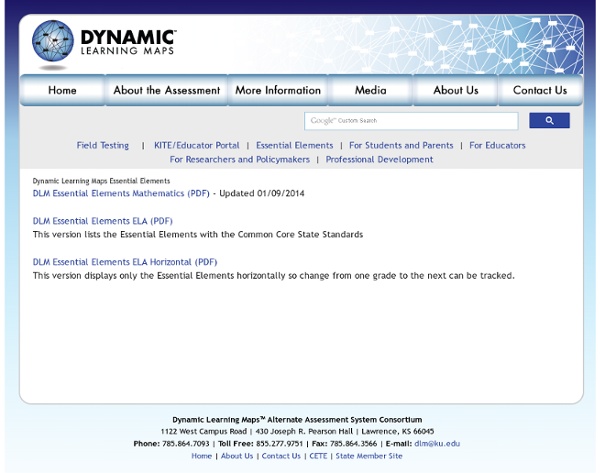



edWeb: A professional online community for educators Don Johnston Inc. | First Author Writing Software First Author Resources Research & Case Studies Pricing Where every student can be an Author! Bradly is an Author! Improving Self-Esteem See his friends’ story Antonio is an Author! First Author Writing Software helps teachers bring writing to students planning to take the alternate assessment—the 1 to 3 percent of students with complex instructional needs, including autism. Click to write your own product review.Write a Review
LD OnLine: The world's leading website on learning disabilities and ADHD Headsprout Research based, yet fun and engaging, Headsprout's online software adapts to the needs of each learner. Headsprout offers Headsprout Early Reading for ages 4-7 and Reading Comprehension for ages 7+. Price: $99.95 Takes a non-reader to up a mid-2nd grade reading level in 80 episodes. Teaches the essential skills needed for comprehension in 50 episodes.
The 10 Free Tech Tools Your Class Should Be Using Classroom Tools | Feature The 10 Free Tech Tools Your Class Should Be Using By Andy Jeter07/22/13 Even the most tech savvy teachers face challenges when it comes to selecting and implementing the right tools to enhance instruction. One of the biggest: Engaging students in rigorous and relevant learning using tools they’re already accustomed to amidst the ocean of potential distractions provided by the web. Overcoming this obstacle requires developing fresh and exciting projects that utilize these tools. Of course the biggest roadblock most of us face is funding. 1. iTalc. 2. 3. 4.
Do2Learn: Educational Resources for Special Needs BetterLesson UDL Editions by CAST Qualified Candidates in Select U.S. Regions Can Now Earn Columbia Master of Social Work Online | Columbia University School of Social Work The School of Social Work at Columbia University has announced that it is expanding its Master of Science in Social Work (MSSW) program through a new online option available in select U.S. regions. The program is open initially to residents of the areas of greater New York City, Albany, Buffalo, Syracuse, Hartford, Stamford, Washington, D.C., Miami/West Palm Beach, San Francisco, Los Angeles, and the entire state of New Jersey. Applications will be accepted through December 1st for the Fall 2015 semester. Prospective applicants should sign up for an informational Webinar on October 8. For more details, go to swadmissions.columbia.edu or call 1-855-532-5200. “We’re removing campus borders, and bringing Columbia—its quality education, its legacy and its network—to more people across the country,” said Dean Jeanette C.